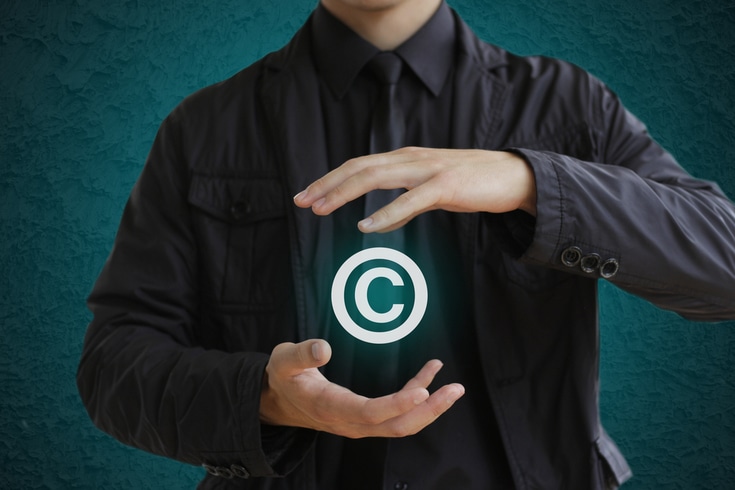Guidelines for Using Virtual YouTuber (VTuber) Content

In recent years, video sharing platforms such as YouTube have evolved, and YouTubers have expanded their activities. Consequently, the popularity of YouTuber as a new profession is on the rise.
There are various types of YouTubers, but recently, Virtual YouTubers have been attracting attention. Virtual YouTubers, also known as VTubers, are individuals who use computer graphics personalitys to post and distribute videos as YouTubers. Famous VTubers include Kizuna AI.
Due to the nature of Virtual YouTubers/VTubers, which involves the use of computer graphics personalitys, various rights issues such as intellectual property rights become problematic. Therefore, it is important to specifically define the rights related to Virtual YouTubers/VTubers.
In this article, we will explain the guidelines for using Virtual YouTuber/VTuber content.
What are the Guidelines for Using Virtual YouTuber/VTuber Content?
The guidelines for using Virtual YouTuber/VTuber content refer to the rules that govern the conditions of use when users utilize Virtual YouTuber/VTuber content.
It is crucial for Virtual YouTubers/VTubers to be widely recognized by many people. Therefore, it is beneficial to have many people use Virtual YouTuber/VTuber content. However, if users are allowed to use Virtual YouTuber/VTuber content without any stipulated conditions, there is a risk of actions that infringe on intellectual property rights. To prevent such infringements, guidelines for using Virtual YouTuber/VTuber content are established.
Purpose of the Guidelines for Using VTuber Content

Various purposes can be considered for the guidelines for using Virtual YouTuber/VTuber content. As mentioned earlier, it is beneficial to have many people use Virtual YouTuber/VTuber content. Therefore, many cases aim to establish rules for spreading Virtual YouTuber/VTuber content to many people and creating derivative works.
For example, the following provisions can be considered:
(Purpose)
○○ Corporation (hereinafter referred to as “our company”) establishes these guidelines with the aim of encouraging a wide range of users to know about the VTuber content (hereinafter referred to as “this content”) provided by our company, promoting active secondary creative activities using this content, and contributing to the development of culture and this content. Our company will not exercise copyright and other rights regarding the use of this content as long as the use of this content by users complies with these guidelines and does not violate laws, public order, or good morals. Please note that our company may establish individual rules separately. When individual rules are established, users shall use VTuber content in accordance with these guidelines and the separately established individual rules.
Applicability of the Guidelines for Using Virtual YouTuber/VTuber Content
Users of Virtual YouTuber/VTuber content can be various entities, including individuals, corporations, and unincorporated organizations. Generally, it is often the case that individuals are the main users, so there are cases where the guidelines target individuals. If the guidelines target individuals, they do not apply to corporations. In such cases, if a corporation wants to use Virtual YouTuber/VTuber content, it needs to contact the rights holder individually.
For example, the following provisions can be considered:
(Scope of the Guidelines)
These guidelines apply to individuals. The use of this content by corporations and other organizations is not covered by these guidelines, so if corporations and other organizations wish to use this content, they need to contact our company individually. Also, the range of this content that users can use according to these guidelines is limited to the range where our company has copyright and other rights. If the content includes content for which a third party other than our company has rights, it may be necessary to obtain permission from the third party, so please contact the third party.
Terms of Use for Virtual YouTuber (VTuber) Content

The terms of use for Virtual YouTuber (VTuber) content will be considered in accordance with the intentions of the rights holder.
If the purpose of the guidelines for the use of Virtual YouTuber (VTuber) content is to encourage many people to disseminate VTuber content and create derivative works, it is conceivable that the terms of use may allow users to publish copies and derivative works of VTuber content. In such cases, users may be required to include information about the rights holder of the VTuber content, such as “©○○ Corporation” or “Original work by ○○ Corporation”, when publishing copies or derivative works of VTuber content.
For example, the following provision could be considered:
(Terms of Use)
When publishing copies or derivative works of this content, users must clearly state information about the rights holder of the VTuber content, such as “©○○ Corporation” or “Original work by ○○ Corporation”.
Permissible Uses
Even if the publication of copies and derivative works of Virtual YouTuber (VTuber) content is allowed, it is not unlimited. The range of permissible uses may be limited.
For example, commercial use may be prohibited, and only non-profit copying and adaptation may be allowed. Alternatively, the scope of non-profit use may be slightly relaxed, and monetization on platforms like YouTube may be allowed within a certain limit.
For example, the following provision could be considered:
(Permissible Uses)
Even if revenue is generated through the use of this content, if the range of revenue does not exceed a separately stipulated amount, it will be presumed to be within the scope of non-profit purposes.
Prohibited Uses

In the guidelines for the use of Virtual YouTuber (VTuber) content, there may be provisions prohibiting certain uses of VTuber content.
As mentioned earlier, the purpose of the guidelines for the use of Virtual YouTuber (VTuber) content is to encourage many people to disseminate VTuber content and create derivative works. However, it is meaningless if VTuber content is disseminated in a way that differs from the image held by the rights holder.
Therefore, it is conceivable to prohibit users from so-called “impersonation”. In the case of “impersonation”, the subjective views of the impersonating user come into play, which may differ from the image held by the rights holder.
Even if it does not fall under “impersonation”, the use of the content in a manner that damages the image of the original work is prohibited.
For example, the following provision could be considered:
(Prohibited Uses)
Users are not allowed to use this content if their use falls under any of the following:
1. Using this content by impersonating our company. Impersonation refers to the act of publishing copies or derivative works that mislead viewers into believing that the content is published by our company.
2. Using this content in a way or with content that damages the image of our company or this content.
3. Using this content in a way or with content that infringes on our rights, the rights of third parties, or legally protected interests.
4. Using this content in any other manner that our company deems inappropriate.
https://monolith.law/reputation/spoofing-dentityright[ja]
Summary
We have just explained the guidelines for using Virtual YouTuber/VTuber content.
The field of Virtual YouTubers/VTubers has rapidly developed in recent years, and there are many cases where guidelines and terms of use are not fully established. Therefore, it is advisable for Virtual YouTubers/VTubers to review their guidelines and terms of use. As the guidelines for using Virtual YouTuber/VTuber content require specialized legal knowledge, we recommend consulting with a knowledgeable law firm.
Category: Internet





















